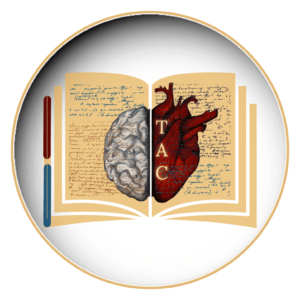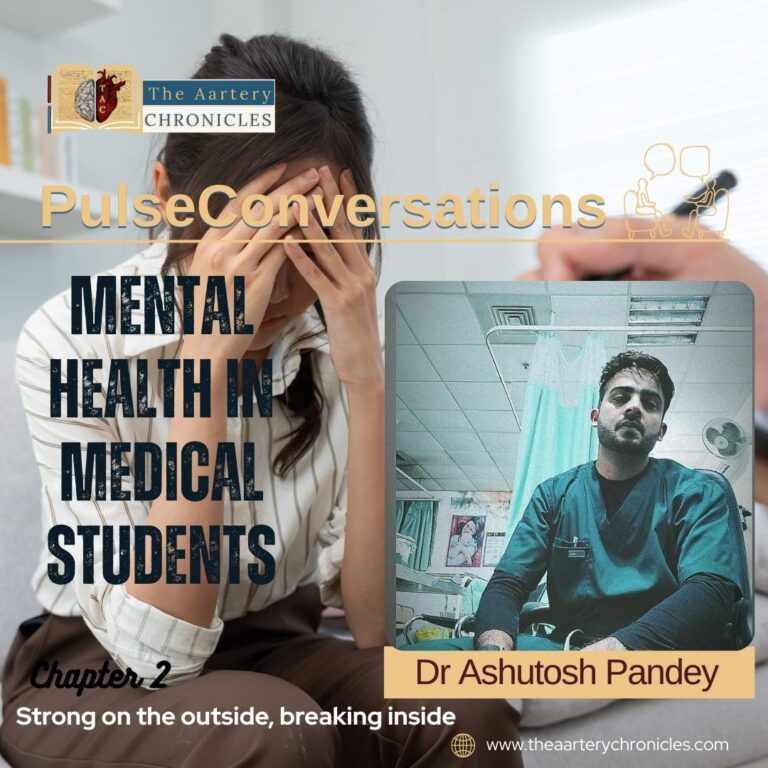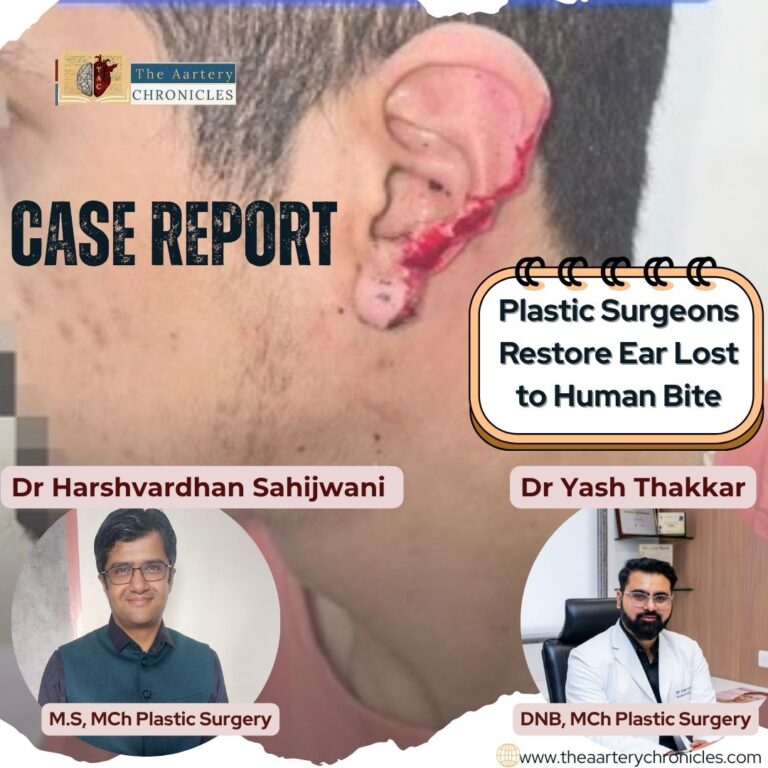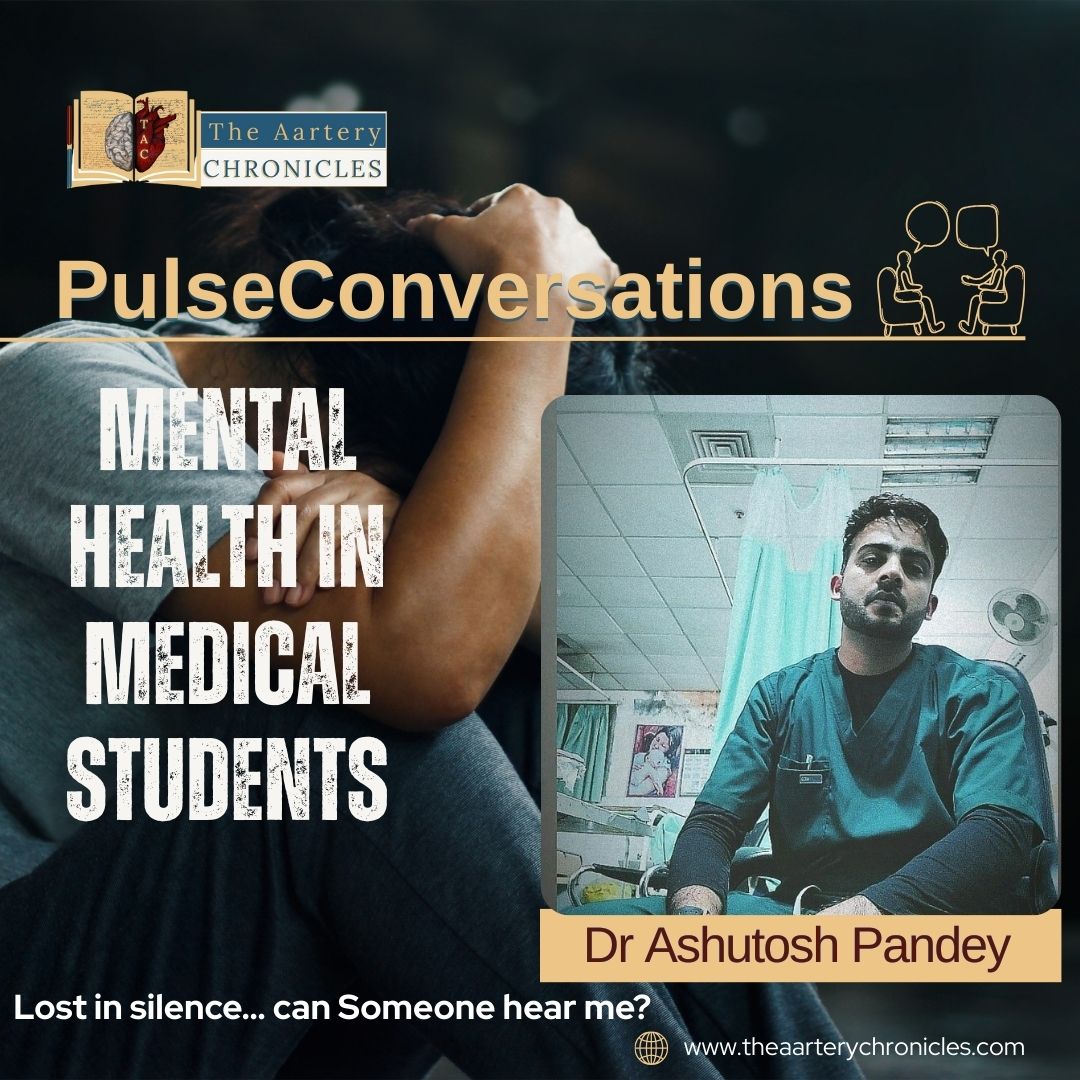
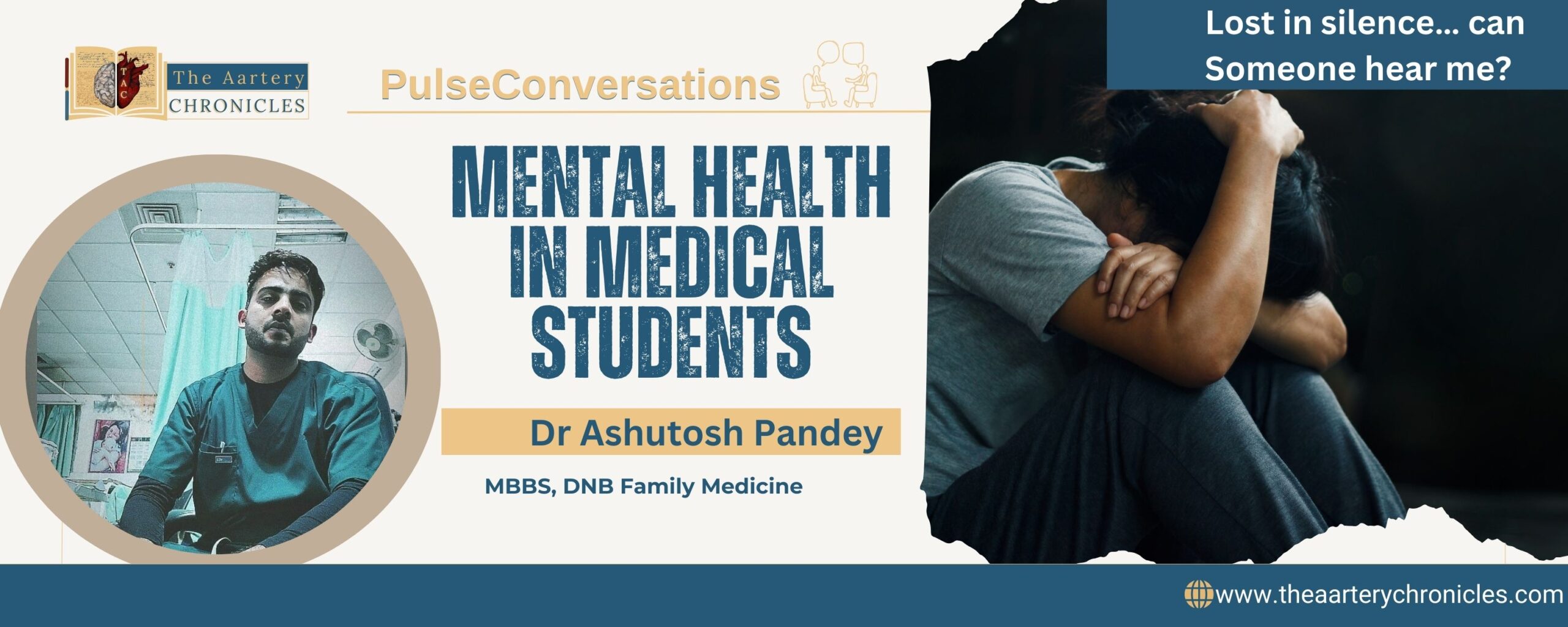
Mental Health in Medical Students: An Expert Interview
Background
Mental health challenges among medical students are on the rise, often leading to
In this candid interview, Dr. Ashutosh Pandey, a postgraduate resident in Family Medicine, shares his insights on why medical students struggle, how to identify early signs, and practical solutions to address this growing concern.
Did you know?
It was found out in a study that 27% of medical students experience depression, and 11% report suicidal thoughts. Mental health in medical education is an urgent issue that requires attention.
Meet the Expert
Dr. Ashutosh Pandey
- MBBS – North East Indira Gandhi Regional Institute of Health and Medical Sciences (NEIGRIHMS), Shillong, Meghalaya (Batch: 2013)
- DNB Family Medicine – BPS Government Medical College for Women, Sonipat, Haryana (Batch: 2021)
Currently completing his post-graduation in Family Medicine, Dr. Pandey has witnessed firsthand the immense psychological pressure faced by medical students in India.
In this interview with Dr. Anjali and Priya Bairagi, from “The Aartery chronicles”, he opens up about depression, stress, and what can be done to protect mental health in one of the most demanding professions.
Priya: Sir, what kind of depression do medical students have to face?
Dr. Pandey: From the current scenario, almost every medical college reports 1–2 student suicides annually, which is alarming. Depression in medical students doesn’t have a single pattern; it varies by individual and stage of training. The exact type is diagnosed by psychiatrists, but the frequency of cases is definitely increasing.
The reasons differ:
- First-year students face performance pressure, adapting to a new environment, and coping with peer pressure.
- Medical education offers delayed rewards. You won’t become a specialist right after MBBS. This long journey itself is stressful.
- Personality traits such as introversion or extroversion also affect coping.
All these pressures accumulate, leading some students towards depression.
Priya: People often say, “I’m depressed.” Is every sad feeling depression?
Dr. Pandey: No. Feeling low or sad for a day is not depression. Depression is a persistent low mood for months, and you lose interest in things you once enjoyed, like music or hobbies. You feel exhausted, hopeless, and lack energy. When these symptoms persist for over 3–6 months, it’s a red flag
Feeling low or sad for a day is not depression
Dr Ashutosh Pandey Tweet
Mental Health Awareness in India: The Stigma
Priya: Many people in rural areas don’t know about mental health. How can they manage?
Dr. Pandey: Awareness is low. Consulting a psychiatrist is often seen as visiting a ‘mad doctor,’ which is a myth. Psychiatrists treat everything from mild anxiety to severe disorders.
Consult a doctor immediately if you notice symptoms like
- Sleep disturbances
- Appetite changes
- Irritability
- Social withdrawal
Even talking to friends or family helps relieve stress.
Dr. Anjali: Can curriculum changes reduce mental health issues?
Dr. Pandey: Yes. Colleges should:
- Assign mentors to new students for emotional support.
- Include extracurricular activities, such as
- Sports
- Trips
- Cultural events
- Teach time management.
- Encourage yoga and meditation.
Such steps can reduce stress and prevent depression.
Lifestyle Factors That Make It Worse
Dr. Pandey: Medical students often have a
- Sedentary lifestyle
- Poor nutrition
- Irregular sleep schedules due to long classes and exams
Social media addiction also affects mental health. Watching endless reels increases dopamine resistance, leading to
- Boredom
- Depression
Hostel authorities should ensure healthy food, and students should maintain a balanced diet and exercise routine.
Hostel authorities should ensure healthy food, and students should maintain a balanced diet and exercise routine
Dr Ashutosh Pandey Tweet
Are Medical Students Aware of Mental Health?
Dr. Pandey: Not enough. Mental health education comes late in the curriculum, and psychiatry appears in the final year, so early-year students lack awareness. Even senior students hesitate to seek counselling due to stigma, causing a delayed diagnosis.
Why Are PG Students More Vulnerable?
Priya: Why do PG doctors commit suicide despite experience?
Dr. Pandey: Postgraduate doctors face an extreme workload, often with little rest:
- OPD
- Emergencies
- Interdepartmental work
- Thesis
- Exams
Combined with personal stress and departmental toxicity, it leads to burnout. The competition is brutal, and expectations are high. Without proper support, some break under pressure.
Priya: Can Curriculum Be Lightened?
Dr. Pandey: Medical science is vast and sensitive; mistakes cost lives. We can start teaching clinical subjects earlier to spread out the burden, but we can’t compromise on content. Instead, focus should be on
- Stress management training
- Peer support
- Healthy lifestyle promotion
Key Facts About Mental Health in Medical Students
- According to the WHO, one in four people globally will face mental health issues at some point in life.
- A study in the Indian Journal of Psychiatry reported 30% of medical students experience depression symptoms.
- Suicide rates among doctors are higher than in the general population, especially among PG residents.
We thank Dr. Ashutosh Pandey for giving his time and sharing invaluable insights. His expertise has significantly deepened our understanding of Mental health in Medical Students.
- Rotenstein LS, Ramos MA, Torre M, et al. Prevalence of Depression, Depressive Symptoms, and Suicidal Ideation Among Medical Students: A Systematic Review and Meta-Analysis. JAMA. 2016;316(21):2214–2236.
- Indian Journal of Psychiatry. Depression, anxiety, and stress among medical students: A cross-sectional study.
- World Health Organization. Mental health: Strengthening our response.
